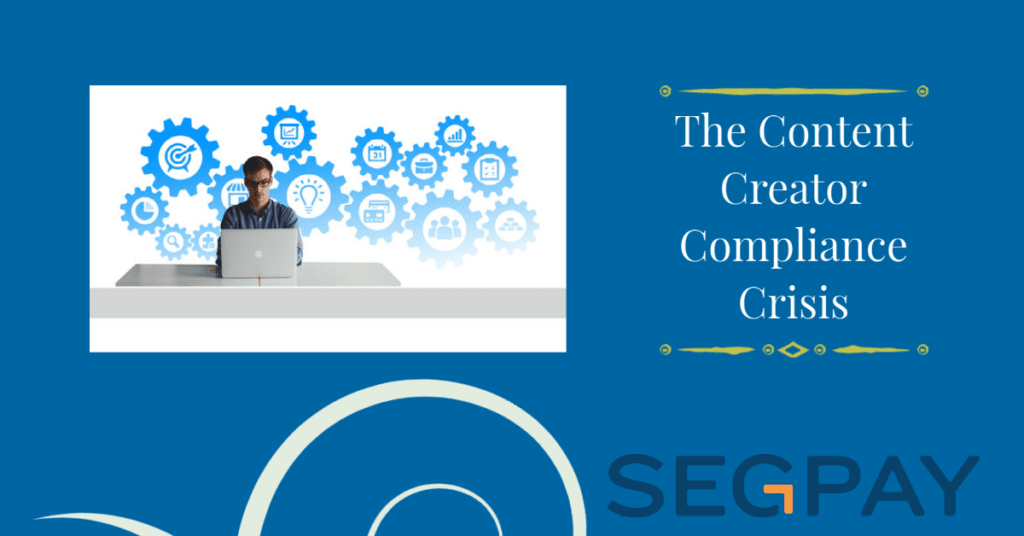From Backlash to Bulletproofing Your Business

Last month we gave you the master keys to the new MasterCard rules, sharing how to best keep your company compliant. We have since been given further clarification from MasterCard on a few points that we wanted to share. First, for consent it’s the merchant who verifies the uploader and the uploader who needs to have consent of the other participants including their ages and identities. Also, live stream sites must have tools and/or a team in place that moderates and reviews live stream content. Lastly, and very importantly, we received clarification on verifying content before the October 15th start date. The new rules apply only to content uploaded on October 15th and going forward. Legacy content does not need additional verification as previously thought.
Many of us have been preparing for these new MasterCard rules for months and it hit me, that we had been working to satisfy these new regulations with blinders on. We were not realizing that one important voice hasn’t been heard, the one of the people behind the payments. These are those who create content and whose livelihoods are now on the line. The Free Speech Coalition (FSC) has been listening and gathering collective concerns. Creators began to feel paralyzed when they thought they had to revalidate old content. All of this after OnlyFans initially decided to prohibit sexually explicit content—to then reverse its decision after swift and widespread pushback. As an FSC board member I felt it was important to let these voices be heard. This month we dive into the top eight key issues and discuss ways we can calm this content creator controversy.
The Creator Conundrum: We’ve Got Issues
MasterCard’s main goal with its new regulations is to remove the risky elements of a user being able to upload content anonymously to the internet. It also wants to remove any content that is not authorized by the individual who appears or is posted on the internet. While there are many legitimate players in the adult space, there are some who cause trouble which has led to these new regulations. Creators, we heard your concerns!
- Then vs. Now Validation
Validating IDs is a big part of the new MasterCard regulations. That validation is also what’s causing a lot of confusion especially when it comes to validating IDs for older content. With the new clarification, content uploaded before October 15, 2021, does not need re-validation. The new user uploaded content would need to have a valid ID and would need to be collected from the user and the user must confirm that any other individuals in the content is of age and that they have a valid ID and release and that the content has been reviewed and does not violate the card brand standards.
- Repeat Validation
To top it off, creators who were impacted when OnlyFans temporarily shut down in August and were tasked with moving hundreds, even thousands of pieces of content to a new platform and had to validate it all over again. Since there is no universal standard, this means content that was legal may now be now disallowed. If you’re caught up in this, don’t panic. Take a few deep breaths and begin to prepare. I strongly recommend looking into diversifying and have more than one platform on which to monetize your content. This will eliminate the need to migrate everything multiple times should something go wrong with one platform. Diversification became a practice in the billing space over 15 years ago. Merchants split their traffic to ensure they always have a solution in place should something go wrong with one of their payment processors. While it wasn’t fun for merchants to do at the time, now it is standard practice to use multiple providers.
- AI Recognition Issues
The FSC has received numerous reports of issues from content creators when it comes to compliance. First, facial recognition isn’t always working. For example, creators say their faces are often not recognized when they engage in cosplay or the use of unusual makeup. They also report that artificial intelligence is requesting the ID of any face in the image, including background photos or stuffed animals who appear in the shot.
- Securing Data Securely
Adult creators have also expressed concerns about hacks or the insecure storage of data. This was a major issue with PornWikileaks a decade ago and many are concerned this will happen again. Things like legal names, addresses, and other information floating around unsecured will leave content creators vulnerable to discrimination or stalkers. The good news is there are sophisticated solution providers out there such as VerifyMyContent and Ondato which will store the content creator information securely on their platforms.
- Keeping Content Timely While Valid
Getting things live instantly is important when it comes to being timely. Influencers and creators are concerned these verification regulations will slow things down since everything needs to be reviewed before publication. This means they are being held to a different standard than non-adult creators (or non-adult sites) and it impacts their ability to act quickly and capture trends. Again, MasterCard is requiring live stream sites to have moderating tools in place and/or teams to review all live stream content. There are sophisticated solutions available to help approve content in real time. Many non-adult sites like Patreon and Tango.me utilize the same tools that are now being asked of the adult industry.
- Limited Content Moderation Options
Content Creators expressed concerns that platforms like OnlyFans are the only ones who have the capacity to do real-time verification for live broadcast or quickly moderate content and new platforms or smaller sites do not, which limits competition. While this is true, smaller platforms can have a team and be just as effective or even more effective in verification and moderation. As their volume grows, they will have the funding to integrate technology solutions to help them scale up.
- Vague Rules, Strict Interpretations
MasterCard has only offered general rules and standards that look reasonable, but banks and platforms are requiring additional layers that impact creators. This is where a lot of the drama comes from. Unfortunately, this is how it works with card brands. They roll out guidelines but leave it up to their members or banks to interpret and implement them. While it seems a bit fuzzy now, just wait about three to six months. As things settle down, we will have implemented the controls and we will see how it is all enforced.
- Banned from Social Media
With the National Center of Sexual Exploitation (NCOSE), Exodus Cry and other groups pressuring platforms like Twitter and Reddit, creators are concerned that these sites will soon ban adult content all together like Facebook and Instagram rather than deal with the hassle of validation.
Future Freedom
So where do we go from here and how do we address these valid concerns? I think our best hope is with technology providers or in-house solutions that help speed up age verification, store data more securely and help the speed, ease and moderate content. One group that I have been introduced to is VerifyMyContent that I mentioned earlier. They have created a solution that helps a merchant meet all of the requirements of the new standards. They then store this information securely and it remains private. Once a model is validated on their site, they can use the same validation on other solution providers that also use Verifymycontent. There are other providers out there like Ondato which helps validate age verification, TheHive which helps moderate content and Microsoft Computer Vision, an AI service that analyzes content in images and videos.
I’m proud to have my ear to this special community and am glad that the FSC has been gathering these important viewpoints. Just this summer they participated in a meeting with MasterCard and even though it didn’t resolve anything the attempt was admirable to start a dialogue. I spoke with MasterCard directly and I’m told they are building an FAQ to further clarify the new rules. If you have more questions or concerns, please share them with me and on behalf of the FSC and content creators around the world, I vow to personally take these concerns to directly to MasterCard for the benefit of all.



